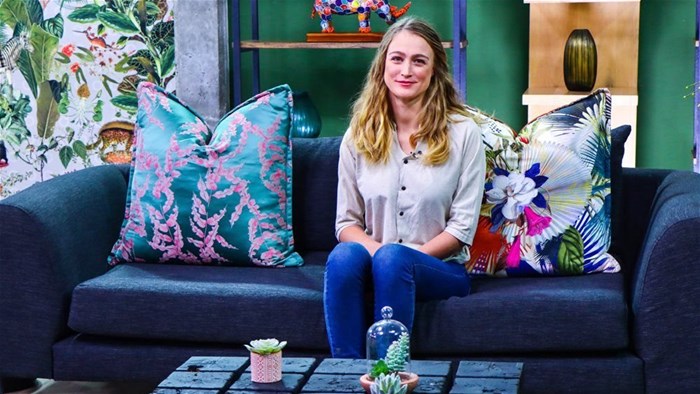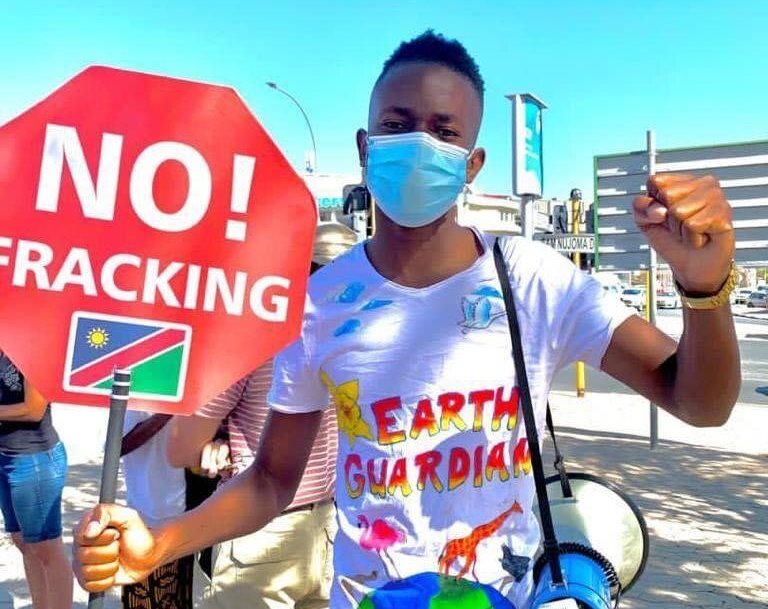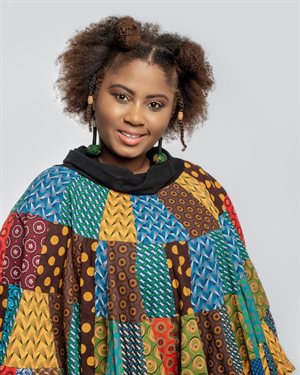It's easy to be laid low by all that ails our planet; did you know there is a word for this? Eco-paralysis.

Supplied image: Rio Button
Eco-paralysis is defined as the feeling that one cannot do anything meaningful to positively affect climate change. Similar feelings include powerlessness, apathy, complacency, or disengagement (Albercht, 2019).
According to three young African leaders, the cure lies in taking incremental steps, celebrating small wins and building on them. Should you want to take it a step further, here are five actionable steps for overcoming eco-paralysis:
Make space for new voices
“Problems that we face can seem big and overwhelming, it seems so unattainable to make any kind of meaningful change sometimes. But we must keep up the energy and make the small changes that cumulatively can bring about big changes,” says Rio Button. “Working with young people, it is important to celebrate the small stuff that maintains the enthusiasm of the movement or project.”
Button, a 27-year-old marine biologist and environmental writer was speaking at a recent “Tipping Points” webinar organised by Oppenheimer Generations Research & Conservation to mark Youth Month in South Africa.
Also on the panel were Reinhold Mangundu, the co-chairman of the Namibia Environment and Wildlife Society, and Karabo Mokoena, a community and environmental activist with a special interest in water.
“The youth must not be disheartened because the climate crisis is huge and overwhelming. We must not be paralysed into not doing anything at all,” said Button.
Take one small step for mankind
According to Button, the antidote to paralysis lies in inspiring and nurturing a love of learning and a passion for conservation among young people. It’s important to create space for the youth, while listening, supporting, and mentoring them.

Supplied image: Reinhold Mangundu
Reinhold Mangundu takes a similar line to Button on how we might face up to an uncertain future: “If we all take small incremental steps, then we will be able to transform our communities, because in the end our future depends on our collective efforts, and we are called to come together and weave together that fabric of humanity.
“However, our African politicians suffer from a syndrome of economic growth without considering sustainability. This affects them in the way that they don’t take young people seriously,” he said, adding that the regeneration of the continent requires a change in thinking.
Innovative solutions
Mokoena, a 29-year-old natural scientist is a strong advocate for involving young scientists in driving an energy revolution for a greener future, lessening the dependency on coal-powered energy plants.
As a member of the South Africa Youth Parliament for Water, Mokoena has been instrumental in developing a “Water Action Plan” on how the government could tackle the current water and sanitation crisis in South Africa. These recommendations were tabled at the United Nations Water Conference in New York in March.

Supplied image: Karabo Mokoena
Mokoena reminded the webinar that unemployment was a big problem in South Africa, especially among the young.
She stressed that people in marginalised communities are very capable of innovation and wants to see a shift from dependency on the formal workplace to job creation through entrepreneurship. This, she said, required that young professionals be recognised for their skills, and ‘not just as youth’.
“We should be allowed to take seats at the big tables and take part in policy- and decision-making,” added Mokoena. “Having a seat at the table means that at every stage of the decision-making process, you have one or two youth representatives who are specialists in that field. Having us there brings a different narrative, a different perspective.”
Consider the ecosystems
Button believes a similar approach had been used by the Responsible Fisheries Alliance in creating ‘safe platforms’ to discuss an ecosystem's approach to fisheries.
“They put us in a room. Scientists, fishermen, and fisheries monitors. They gave us some prompts and activities and we learned so much from each other. Information flowed in all directions.”
"Fishermen could share what was happening at sea and open up about how regulations can be cheated. Scientists could answer questions, like: Why do we need sharks? Why are they important for our ecosystem? And monitors had the opportunity to show the unique challenges they face."
As an ambassador for the WESSA’s Young Reporters for Environment and having written and co-authored more than a dozen biodiversity-related stories for the Daily Maverick, Button asserts the great value in fostering the writing talents of young scientists to promote greater awareness of environmental concerns.
For the full conversation, watch the webinar on the Oppenheimer Generations Research and Conservation (OGRC) YouTube channel below:



















































